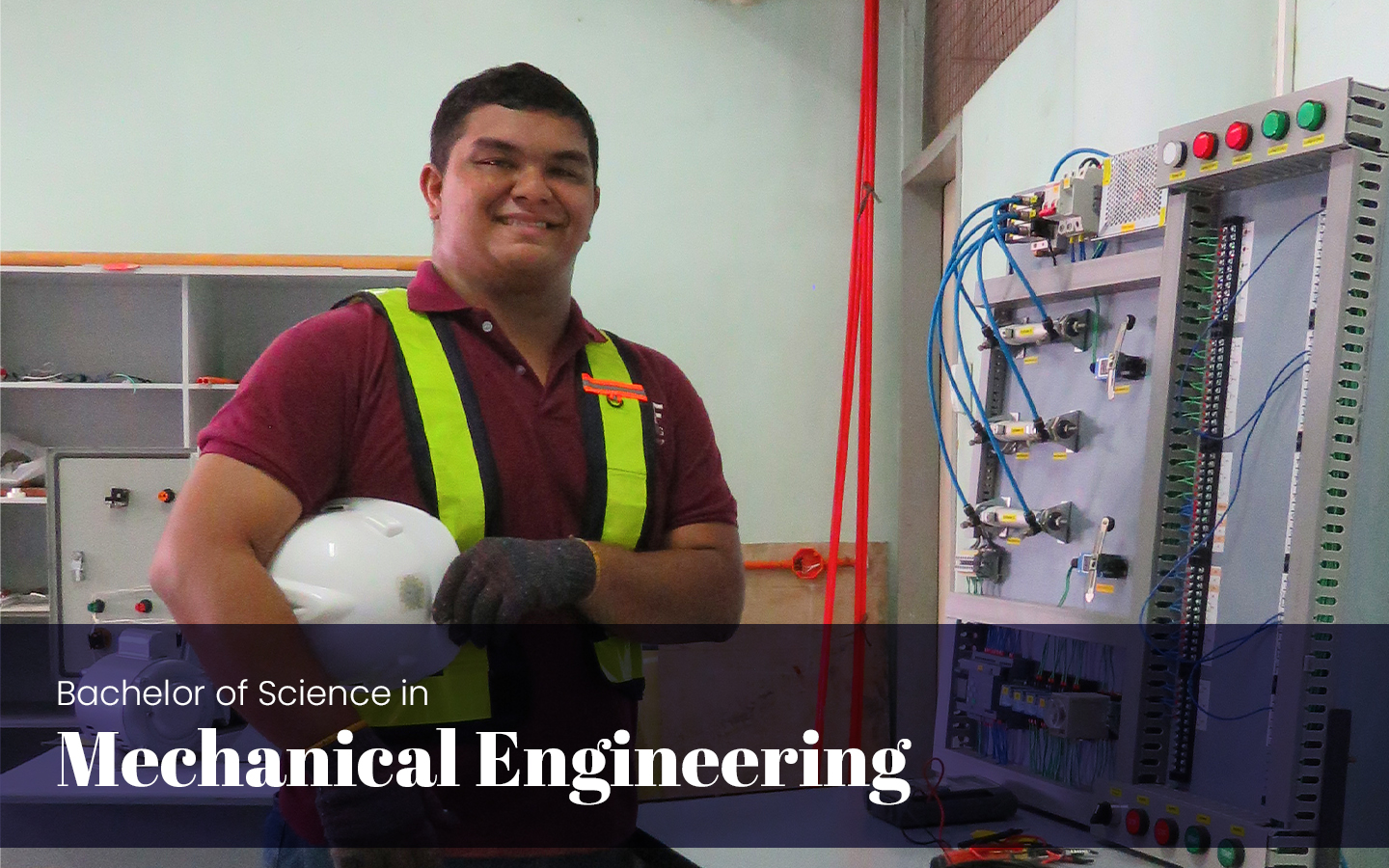Established since the 1930s, the USPF Mechanical Engineering Department has consistently produced board passers by providing holistic quality education to local and foreign students.
BACHELOR OF SCIENCE IN MECHANICAL ENGINEERING
The Mechanical Engineering Department has been established since the 1930s. It has been housed in 3 different locations before it transferred to its newly built structure in 2019. It is now located at the safe back portion of the campus, operational with the newly acquired modern equipment. It is composed of 3 highly capable instructors with Master’s degrees and professional licenses. Its population has been growing for the last years producing board passers and providing holistic quality education to local and foreign students through academic standards, strengthening research programs and social responsiveness.
Mission Statement
We commit ourselves to provide excellent learning outcomes, within the context of Outcomes Based Education, in the field of Mechanical Engineering through competitive programs, continuous research and strong industry linkages.
Program Description
The Bachelor of Science in Mechanical Engineering curriculum emphasizes the fundamental knowledge and skills of mechanical engineering and introduces new emerging areas in the discipline. It is designed to develop professionals that concern itself with mechanical design, energy conversion, fuel and combustion technologies, heat transfer, materials, noise control and acoustics, manufacturing processes, rail transportation, automatic control, product safety and reliability, solar energy, and technological impacts to society. As such the curriculum is comprised of the general education, technical, allied, fundamental, professional, technical elective courses and plant visits or on-the-job-training.
The curricular requirements for elective courses will be utilized to introduce new courses in mechanical engineering or to design a concentration in the mechanical engineering program such as manufacturing engineering, mechatronics engineering, automotive engineering, biomedical engineering, HVAC/R engineering (heating ventilating air-conditioning and refrigerating), etc.
In the selection of elective courses or designing of a concentration or tracking the thrust of industrial development in the locality or region will be taken into consideration.
Furthermore, the new curriculum includes a senior design or thesis project that addresses the specific need of the communities.
Program Educational Objectives (PEOs)
After several years of completion of the program, the graduates are expected to demonstrate the following:
-
-
1. Mastery of knowledge, techniques, skills in modern engineering tools necessary for engineering practice,
-
2. Develop one’s professional, social and ethical responsibility and relate these to professional goals,
-
3. Capability in conducting experiments, design, project study/research whether independently or as part of the group,
-
4. Capability in demonstrating global competitiveness in his/her field of specialization to his/her global work environment,
-
5. Work effectively in multi-disciplinary and multi-cultural teams, and
-
6. Engage in life-long learning and an understanding of the need to keep current of the developments in the specific field of practice.
-
Program Learning Outcomes (PLOs)
By the time of graduation, the students of the program shall have the ability to:
-
-
A. Apply knowledge of mathematics and science to solve complex mechanical engineering problems;
-
B. Design and conduct experiments, as well as to analyze and interpret data;
-
C. Design a system, component, or process to meet desired needs within realistic constraints, in accordance with standards;
-
D. Function in multidisciplinary and multi-cultural teams;
-
E. Identify, formulate, and solve complex mechanical engineering problems;
-
F. Understand professional and ethical responsibility;
-
G. Communicate effectively;
-
H. Understand the impact of mechanical engineering solutions in a global, economic, environmental, and societal context
-
I. Recognize the need for, and engage in life-long learning
-
J. Know contemporary issues;
-
K. Use techniques, skills, and modern engineering tools necessary for mechanical engineering practice;
-
L. Know and understand engineering and management principles as a member and leader of a team, and to manage projects in a multidisciplinary environment;
-
Contact Information
For new applicants who have not completed the requirements, click MESSAGE US.
Message Us

